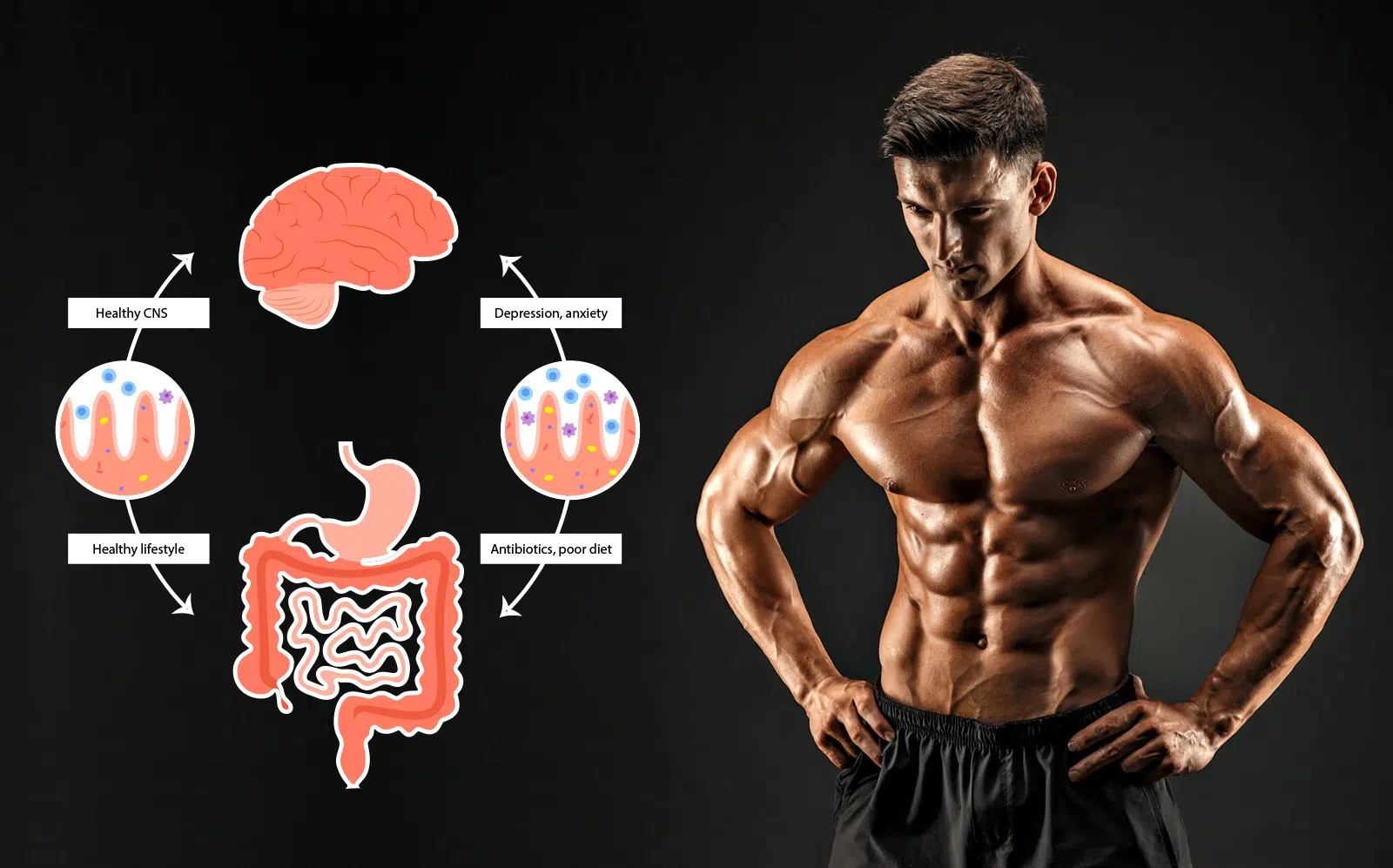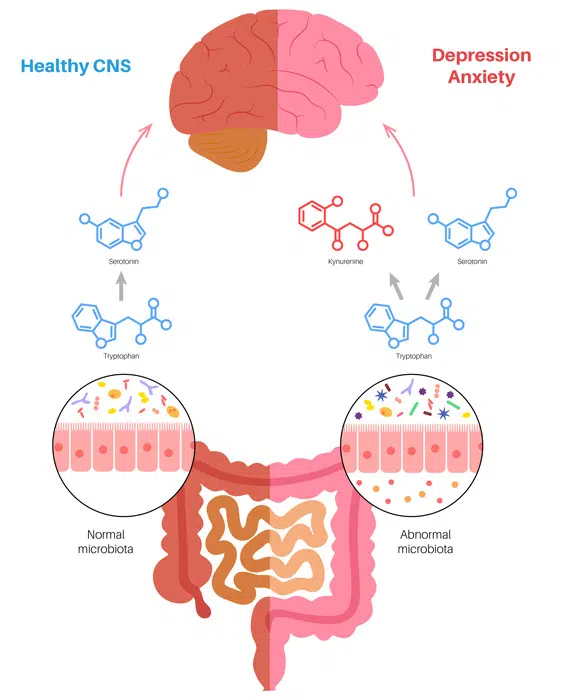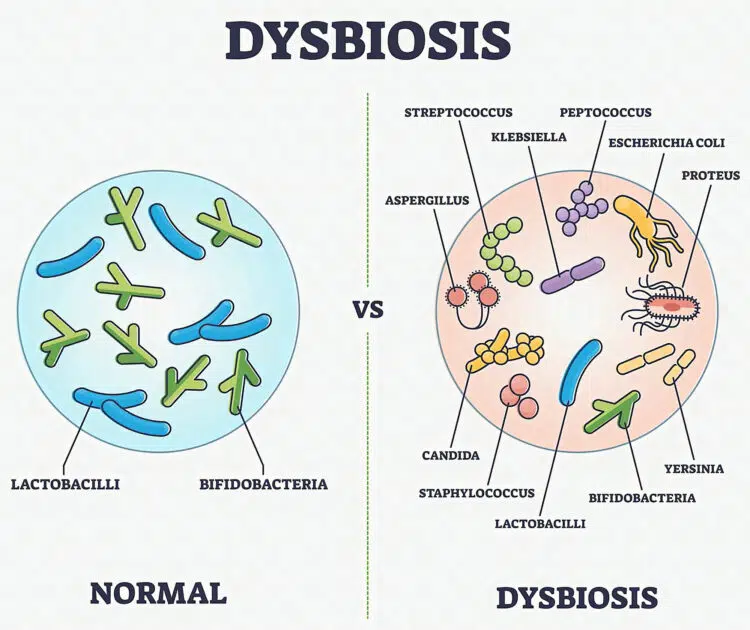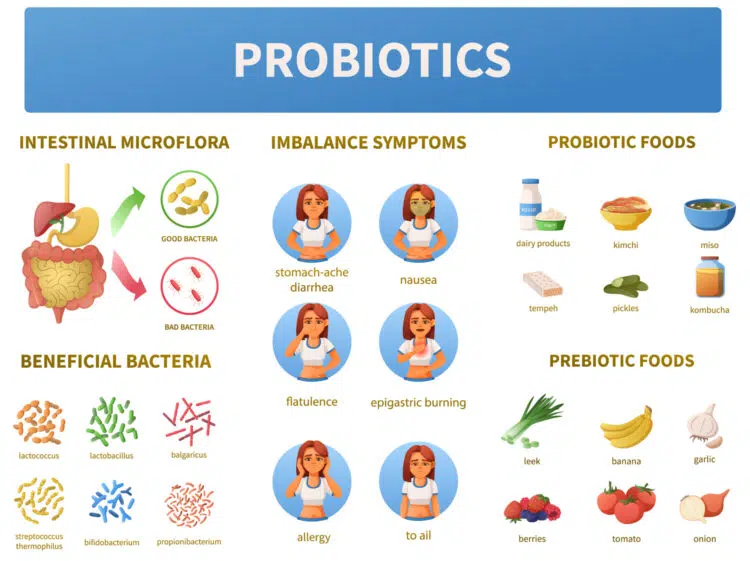When most people think about a physique transformation, their mind instantly turns to exercise, diet, and recovery programs. As a personal trainer who has helped several hundred people transform their bodies, I can tell you that this approach is missing a critical aspect — gut health.
Resistance or cardio training breaks down muscle tissue. A balanced diet might get you all the raw materials that your muscles need to rebuild during the off-time, but you won’t make the desired progress if your gut microbiome is dysfunctional.
The gut microbiome (or gut flora) is the bacteria, archaea, fungi, parasites, and viruses that live inside the human digestive tract, which is a miniature biome.
The gut flora plays a crucial role in several essential functions, including digestion and maintaining the immune and nervous system. It may also support heart and brain health. The most fascinating part about the gut microbiome is that it is unique for each individual.
Since you are reading this article on Fitness Volt, you might have guessed it already — the gut microbiome also plays a significant role in promoting hypertrophy.
In this piece, I will take you over everything you need to know about gut microbiome and how you can optimize it to transform your physique.
Benefits of a Healthy Gut Microbiome For Muscle Development
While we touched upon the overarching role of gut microbiome in the previous section, here is how it can help maximize muscle growth:
Improved nutrient absorption and utilization
If there were no gut microbiome, your digestion would be really messed up. Not only do the bacteria help break down the complex carbs and dietary fibers that the body can’t digest on its own, but they also metabolize several nutrients essential for maintaining overall health.
Fiber is incredibly important for maintaining gut health, which can improve your digestion. Certain bacteria improve fiber digestion, which may help prevent weight gain, diabetes, heart disease, and certain types of cancer. (1)
Enhanced protein synthesis
A healthy and functional gut microbiome can reduce protein fermentation, which can reduce the risk of leaky gut syndrome. It also increases amino acid delivery to the target muscles, improving recovery and muscle gains.
A systematic review found that increased bacteroidetes levels were linked to higher muscle mass, especially in athletes, while overweight individuals showed the opposite trend. (2)
Reduced inflammation and oxidative stress
Inflammation is unavoidable for people engaged in resistance training as it is the muscle’s normal response to muscle tissue damage. However, chronic muscle inflammation can be counterproductive for your hypertrophy goals.
A healthy gut microbiome can help flush out toxins and metabolites from your muscles, boosting muscle protein synthesis and recovery.
Optimized energy metabolism
When the food in your stomach is digested optimally, it will improve your body’s ability to produce energy. A study suggests that gut microbiota may help maintain muscle mass and improve endurance. (3)
Strengthened immune function
The gut flora helps develop the immune system during infancy and early childhood. It consists of several types of bacteria, which also help fight off harmful germs that could compromise your immunity.
It doesn’t end here. The gut microbiome is also responsible for regulating drug absorption. A poor gut flora can make you avert to certain medications and prolong your recovery period.
The thing is, the healthy gut bacteria aren’t doing all this for us. It must compete with pathogens for space and resources in the intensities. So, you can say that it is a do-or-die situation for the gut microbiome.
Improves hormone regulation
The role of gut microbiome is far-reaching. It helps maintain balanced hormone levels, including the reproductive hormones (estrogen and testosterone), growth hormone, cortisol, and insulin, all of which can significantly impact your muscle and strength gains.
The Gut Microbiome and Muscle Growth
It’s time to dig deeper into the gut-muscle axis and learn about how you can maximize your gains by taking good care of your gut. This is how the gut-muscle connection mechanism works:
Role of gut bacteria in producing short-chain fatty acids (SCFAs)
Short-chain fatty acids (SCFAs) are an energy source for the body and collectively contribute six to 10 percent of your daily energy needs. The gut bacteria ferment dietary fiber to produce SCFAs, which can influence muscle growth and repair.
Butyrate, an SCFA, can help stimulate muscle protein synthesis and lower muscle breakdown. This property makes them incredibly important during the cutting phase when athletes are in a caloric deficit but aiming to maintain muscle tissue.
Impact of gut microbiome on testosterone levels and muscle growth
Testosterone is the primary male sex hormone that plays a crucial role in muscle and strength gains. A healthy gut flora can boost test levels and take you close to achieving your muscle gain objectives.
A scientific review concluded that gut microbiota plays a vital role in regulating muscle physiology, and its absence can lead to muscle atrophy. (4)
On a side note, there are roughly 40 trillion bacteria cells in the body and only 30 trillion human cells. It makes us more bacteria than humans. That’s a lot to digest (pun intended). (5)
Gut Dysbiosis & Its Impact on Muscle Gains
Consider gut dysbiosis your archnemesis. It involves a microorganism imbalance in your gut, which can make you more vulnerable to infections from germs living inside and outside of your body. This not only impedes your muscle-building objectives but can hamper your health.
Several factors can contribute to gut dysbiosis, including poor diet, chronic stress, antibiotic use, and even lack of sleep.
Diarrhea and constipation, food sensitivities and intolerances, chronic bad breath, itching in the vagina or rectum, rashes, chronic fatigue, mood changes, anxiety, and depression are a few symptoms of gut dysbiosis.
As you can imagine, this condition can hamper your muscle-building ambitions by impairing nutrient absorption, triggering chronic inflammation, and causing hormonal imbalances. In short, it is the opposite of everything we are trying to achieve. Furthermore, gut dysbiosis has been linked to muscle-wasting conditions like sarcopenia and cachexia.
Strategies to Optimize Your Microbiome for Muscle Gains
Here is how you can improve your gut microbiome via dietary and lifestyle interventions:
Dietary interventions for a thriving gut
The gut microbiome is also known as the second brain, which signifies its importance in your overall health and well-being. Consider the following dietary changes to improve your gut health and maximize muscle gains:
Importance of a diverse and fiber-rich diet
Eating the same foods daily can lead to a monotonous microbiome, which caps their effectiveness. Strive to include a variety of fruits, veggies, whole grains, and lean protein in your daily meals. Remember, dietary fiber is indispensable. Fiber is the indigestible part of plant foods that fuel your gut microbiome. Aim for a minimum of 30 grams of fiber, ideally spread across your meals.
Prebiotic foods to nourish beneficial gut bacteria
Onions, garlic, bananas, asparagus, and Jerusalem artichokes are the most common prebiotics that help the bacteria in your gut thrive and multiply. Include at least one of these foods in each meal to supercharge your gut microbiome.
I must add that not everyone reacts to prebiotics the same way, and some may face issues like cramping, diarrhea, constipation, stomach bloating, and gas and flatulence after eating them. If that’s you, consider a low-FODMAP diet to restore your digestive system and gut flora. This diet can also help you identify the trigger foods as you slowly integrate them back into your diet.
Probiotic foods and supplements to introduce beneficial microbes
Probiotics are living organisms that can improve your gut health when consumed in adequate amounts. The good news here is that if you struggle to consume enough probiotics through real foods, you can consider a high-quality probiotic supplement to make up the shortfall.
Long-term probiotic use can improve protein utilization rate in the long term and promote muscle synthesis, meaning you get more bang for your buck.
However, Dr. Mike Israetel, Ph.D. in Sports Physiology, cautions against going overboard with probiotic supplements. There is no one-size-fits-all approach to gut health, Israetel said. Probiotics are not a magic bullet for gut health and there is no single best probiotic for everyone.
Several factors influence gut health, including gender, age, lifestyle, diet, and physical activity, and you must consider all of them before switching to a new diet or adding a new supplement to your stack.
Role of fermented foods in gut health
Most fermented foods are probiotics that can boost your gut health. Fermented foods have been a staple in many cultures for centuries due to their gut flora-boosting benefits.
A high-fermented food diet, which includes yogurt, kimchi, sauerkraut, and kefir, can also increase the amount of beneficial bacteria in your gut, said Dr. Andrew Huberman, a professor of neurobiology and ophthalmology at Stanford University.
Remember, the composition and diversity of your gut microbiome can impact your muscle gains and recovery. Avoid sticking to a particular type of foods and instead add variety to your diet regime to optimize your results.
Lifestyle factors impacting gut health
Besides your diet, several lifestyle factors can significantly impact your gut health. Implementing the following lifestyle changes can improve your gut flora and boost muscle gains:
- Focus on Hydration: Drink at least a gallon of water daily to ensure efficient transport of nutrients and waste products.
- Limit Alcohol & Smoking: Excessive alcohol and smoking can destroy your gut microbiome. Eliminate them for a healthier lifestyle.
- Medication: Although much cannot always be done about these, you can talk to your doctor about any side effects you might be facing due to your medication.
- Mindfulness & Meditation: These can help lower stress levels, which can promote a good gut environment.
- Yoga & Tai Chi: This takes meditation a step forward by including movement.
- Prioritize Sleep: Sleep for at least seven to eight hours each night to allow your body enough time to recover and your gut flora to thrive.
- Regular Exercise: Engaging in at least 150 minutes of moderate-intensity or 75 minutes of high-intensity exercise each week is absolutely non-negotiable for a healthy gut microbiome.
Conclusion
The microbes in the human body weigh around 2-5 pounds (1-2 kilograms), which is roughly how much your brain weighs. Consider them an extra organ in your body as they play a vital role in your overall health and well-being.
Implement the dietary and lifestyle strategies listed in this article to improve your gut health and maximize your muscle-building potential. Remember, it might take some trial and error, but you will be rewarded with better nutrient absorption and muscle gains.
If you have any questions about gut microbiome, post them in the comments below, and I’ll be happy to help!
References:
- Slavin J. Fiber and prebiotics: mechanisms and health benefits. Nutrients. 2013;5(4):1417-1435. Published 2013 Apr 22. doi:10.3390/nu5041417
- Komodromou, I., Andreou, E., Vlahoyiannis, A., Christofidou, M., Felekkis, K., Pieri, M., & Giannaki, C. D. (2024). Exploring the Dynamic Relationship between the Gut Microbiome and Body Composition across the Human Lifespan: A Systematic Review. Nutrients, 16(5), 660. https://doi.org/10.3390/nu16050660
- Chew, W., Lim, Y. P., Lim, W. S., Chambers, E. S., Frost, G., Wong, S. H., & Ali, Y. (2023). Gut-muscle crosstalk. A perspective on the influence of microbes on muscle function. Frontiers in medicine, 9, 1065365. https://doi.org/10.3389/fmed.2022.1065365
- Lefevre, C., & Bindels, L. B. (2022). Role of the Gut Microbiome in Skeletal Muscle Physiology and Pathophysiology. Current osteoporosis reports, 20(6), 422–432. https://doi.org/10.1007/s11914-022-00752-9
- Sender R, Fuchs S, Milo R. Revised Estimates for the Number of Human and Bacteria Cells in the Body. PLoS Biol. 2016;14(8):e1002533. Published 2016 Aug 19. doi:10.1371/journal.pbio.1002533
Tip: If you're signed in to Google, tap Follow.













